Thursday, June 18, 2015 |
| 8:15 - 8:30 |
Welcoming Remarks - TBD |
| 8:30 - 10:30 |
Session 1: Capital Misallocation and Labor Markets
- Chair: Pau Rabanal (IMF, Associate Editor of the IMF Economic Review)
 Pau Rabanal is a Senior Economist in the IMF´s Research Department and Associate Editor of the IMF Economic Review. He joined the IMF in 2002 and has also worked in the Monetary and Capital Markets, Western Hemisphere, Middle East and Central Asia and Institute For Capacity Development departments of the IMF. Between 2006 and 2008, he was an economist in the research department at La Caixa in Barcelona. He obtained a BA in Economics and Business Administration from Universitat Pompeu Fabra in Barcelona, a MSc in Economics and Finance from CEMFI, and he holds a PhD in Economics from New York University. His fields of specialization are monetary economics, international economics and time series econometrics. He has published papers in the Journal of Monetary Economics, Journal of International Economics, Journal of Money, Credit and Banking, International Journal of Central Banking, and the NBER Macroeconomics Annual. Pau Rabanal is a Senior Economist in the IMF´s Research Department and Associate Editor of the IMF Economic Review. He joined the IMF in 2002 and has also worked in the Monetary and Capital Markets, Western Hemisphere, Middle East and Central Asia and Institute For Capacity Development departments of the IMF. Between 2006 and 2008, he was an economist in the research department at La Caixa in Barcelona. He obtained a BA in Economics and Business Administration from Universitat Pompeu Fabra in Barcelona, a MSc in Economics and Finance from CEMFI, and he holds a PhD in Economics from New York University. His fields of specialization are monetary economics, international economics and time series econometrics. He has published papers in the Journal of Monetary Economics, Journal of International Economics, Journal of Money, Credit and Banking, International Journal of Central Banking, and the NBER Macroeconomics Annual.
-
When Low Demand Creates Low Supply: The Inverse of Say’s Law
Gauti Eggertsson (Brown University) and Neil Mehrotra (Brown University)
-
Discussant: Jaume Ventura (CREi)
-
 Jaume Ventura earned his PhD in Economics at Harvard University in 1995. Currently he is a Senior Researcher at the Center for Research in International Economics (CREI), a Research Professor at the Barcelona GSE and a Professor at Universitat Pompeu Fabra (UPF). Previously, he held academic positions at the MIT and the University of Chicago. He served as a co-director of the International Macroeconomics Programme of the CEPR and also as an editor of the Economic Journal. He is a Research Fellow at the CEPR, a Research Associate at the NBER, and a Fellow of the European Economic Association. He served as a consultant to the IMF, the World Bank and the Inter-American Development Bank. His research interests include international economics and macroeconomics. Jaume Ventura earned his PhD in Economics at Harvard University in 1995. Currently he is a Senior Researcher at the Center for Research in International Economics (CREI), a Research Professor at the Barcelona GSE and a Professor at Universitat Pompeu Fabra (UPF). Previously, he held academic positions at the MIT and the University of Chicago. He served as a co-director of the International Macroeconomics Programme of the CEPR and also as an editor of the Economic Journal. He is a Research Fellow at the CEPR, a Research Associate at the NBER, and a Fellow of the European Economic Association. He served as a consultant to the IMF, the World Bank and the Inter-American Development Bank. His research interests include international economics and macroeconomics.
-
The Dark Corners of the Labor Market
Vincent Sterk (University College London)
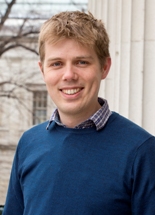 Vincent Sterk has been a lecturer (assistant professor) in macroeconomics at the Economics Department of University College London since 2011. Previously, he was a PhD student at the University of Amsterdam and an economist at De Nederlandsche Bank (the Dutch Central Bank). His work aims to better understand the importance fluctuations in aggregate employment, and in particular the role of cyclical swings house prices, firm start-ups and precautionary savings. A second line of research focuses on gaining a better understanding of the monetary transmission mechanism. A common theme in both lines of research is to explore the importance of heterogeneity among economic agents and non-linear effects. In 2011, Vincent received a medal for best PhD dissertation in economics, awarded once every three years by the Dutch Royal Society for Economics (KVS). Vincent Sterk has been a lecturer (assistant professor) in macroeconomics at the Economics Department of University College London since 2011. Previously, he was a PhD student at the University of Amsterdam and an economist at De Nederlandsche Bank (the Dutch Central Bank). His work aims to better understand the importance fluctuations in aggregate employment, and in particular the role of cyclical swings house prices, firm start-ups and precautionary savings. A second line of research focuses on gaining a better understanding of the monetary transmission mechanism. A common theme in both lines of research is to explore the importance of heterogeneity among economic agents and non-linear effects. In 2011, Vincent received a medal for best PhD dissertation in economics, awarded once every three years by the Dutch Royal Society for Economics (KVS).
Discussant: Claudio Michelacci (Einaudi Institute for Economics and Finance)
|
| 10:30 - 11:00 |
Coffee Break |
| 11:00 - 13:00 |
Session 2: Secular Stagnation and Investment
- Chair: Pierre-Olivier Gourinchas (University of California at Berkeley, CEPR, and Editor in Chief of the IMF Economic Review)
-
 Pierre-Olivier Gourinchas grew up in Montpellier, France. He attended Ecole Polytechnique then received his PhD in Economics in 1996 from MIT. He taught at Stanford Graduate School of Business and Princeton University before joining UC Berkeley department of economics. Pierre-Olivier Gourinchas grew up in Montpellier, France. He attended Ecole Polytechnique then received his PhD in Economics in 1996 from MIT. He taught at Stanford Graduate School of Business and Princeton University before joining UC Berkeley department of economics.
Professor Gourinchas' main research interests are in international macroeconomics and finance. His recent research focuses on the importance of the valuation channel for the dynamics of external adjustment and the determination of exchange rates (with Hélène Rey); on the determinants of capital flows to and from developing countries (with Olivier Jeanne); on international portfolios (with Nicolas Coeurdacier); on global imbalances (with Ricardo Caballero and Emmanuel Farhi), on international price discrimination (with Gita Gopinath, Chang-Tai Hsieh and Nick Li) and on the global financial crisis (with Maury Obstfeld). He is the laureate of the 2007 Bernà cer Prize for best European economist working in macroeconomics and finance under the age of 40, and of the 2008 Prix du Meilleur Jeune Economiste for best French economist under the age of 40. In 2012-2013, Pierre-Olivier Gourinchas was a member of the French Council of Economic Advisors to the Prime Minister.
-
The Corporate Saving Glut in the Aftermath of the Global Financial Crisis
Joseph Gruber (Board of Governors of the Federal Reserve System) and Steven Kamin (Board of Governors of the Federal Reserve System)
Discussant: Catherine L. Mann (OECD) -
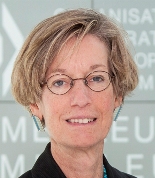 Catherine L. Mann is OECD Chief Economist, Head of the Economics Department and the OECD G20 Finance Deputy.
She was the Rosenberg Professor of Global Finance at Brandeis University and from 1997-2011 was a Senior Fellow and visiting Fellow at the Peterson Institute for International Economics. Earlier Ms. Mann served as a Senior International Economist at the US President’s Council of Economic Advisors and worked as a Special Assistant to the Vice-President for Development Economics/Chief Economist at the World Bank. She spent 13 years on the Federal Reserve Board as a Senior Economist.
She has authored or co-authored seven books, 60 articles, and numerous shorter pieces and testimony. She frequently appears on Bloomberg, CNBC, and public broadcasting, and has been quoted in Businessweek and The Economist. Her research spans two main topics – global imbalances and globalisation of technology and services.
-
Why are Real Interest Rates so Low? Secular Stagnation and the Relative Price of Investment Goods
Gregory Thwaites (Bank of England)
-
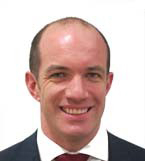 Gregory Thwaites is Head of International Research at the Bank of England. He joined the Bank in 2001 and since then has worked in a broad range of policy roles covering international finance, monetary policy, macroprudential policy and banking structural reform. He has also worked for the United Nations, the UK Independent Commission on Banking, and the UK Houses of Parliament. He holds degrees in economics from Cambridge University, UCL and the London School of Economics. Gregory Thwaites is Head of International Research at the Bank of England. He joined the Bank in 2001 and since then has worked in a broad range of policy roles covering international finance, monetary policy, macroprudential policy and banking structural reform. He has also worked for the United Nations, the UK Independent Commission on Banking, and the UK Houses of Parliament. He holds degrees in economics from Cambridge University, UCL and the London School of Economics.
Discussant: : Neil Mehrotra (Brown University)
|
| 13:00 - 14:30 |
Lunch Break |
| 14:30 - 16:30 |
Session 3: Beliefs, Bubbles and Secular Stagnation
- Chair: Ramon Marimon (EUI)
-
Credit Bubbles and Liquidity Traps: Implications for Monetary Policy
Vladimir Asriyan (CREI and Universitat Pompeu Fabra),
-
Alberto Martin (CREI, Universitat Pompeu Fabra and CEPR)
-
 Alberto Martin is a Senior Economist in the IMF’s Research Department on leave from the Centre de Recerca en Economia Internacional (CREI) and the Barcelona Graduate School of Economics, where he respectively serves as a Senior Researcher and a Research Professor. He is also a Research Affiliate at the Center for Economic and Policy Research (London) and a member of the editorial board of the Review of Economic Studies. Martin´s research lies at the intersection of macroeconomics and finance. His work has been published in leading economic journals including the American Economic Review, the Journal of Finance and the Journal of Economic Theory. In the past, Martin has been a Research Fellow at the IMF, a Lamfalussy Fellow at the European Central Bank, and a Fulbright Fellow. He has also consulted for the United Nations Development Program and worked in Argentina’s Ministry of Economics. He holds a PhD in Economics from Columbia University. Alberto Martin is a Senior Economist in the IMF’s Research Department on leave from the Centre de Recerca en Economia Internacional (CREI) and the Barcelona Graduate School of Economics, where he respectively serves as a Senior Researcher and a Research Professor. He is also a Research Affiliate at the Center for Economic and Policy Research (London) and a member of the editorial board of the Review of Economic Studies. Martin´s research lies at the intersection of macroeconomics and finance. His work has been published in leading economic journals including the American Economic Review, the Journal of Finance and the Journal of Economic Theory. In the past, Martin has been a Research Fellow at the IMF, a Lamfalussy Fellow at the European Central Bank, and a Fulbright Fellow. He has also consulted for the United Nations Development Program and worked in Argentina’s Ministry of Economics. He holds a PhD in Economics from Columbia University.
- and Jaume Ventura (CREI, Universitat Pompeu Fabra and CEPR)
-
 Jaume Ventura earned his PhD in Economics at Harvard University in 1995. Currently he is a Senior Researcher at the Center for Research in International Economics (CREI), a Research Professor at the Barcelona GSE and a Professor at Universitat Pompeu Fabra (UPF). Previously, he held academic positions at the MIT and the University of Chicago. He served as a co-director of the International Macroeconomics Programme of the CEPR and also as an editor of the Economic Journal. He is a Research Fellow at the CEPR, a Research Associate at the NBER, and a Fellow of the European Economic Association. He served as a consultant to the IMF, the World Bank and the Inter-American Development Bank. His research interests include international economics and macroeconomics. Jaume Ventura earned his PhD in Economics at Harvard University in 1995. Currently he is a Senior Researcher at the Center for Research in International Economics (CREI), a Research Professor at the Barcelona GSE and a Professor at Universitat Pompeu Fabra (UPF). Previously, he held academic positions at the MIT and the University of Chicago. He served as a co-director of the International Macroeconomics Programme of the CEPR and also as an editor of the Economic Journal. He is a Research Fellow at the CEPR, a Research Associate at the NBER, and a Fellow of the European Economic Association. He served as a consultant to the IMF, the World Bank and the Inter-American Development Bank. His research interests include international economics and macroeconomics.
Discussant: François Geerolf (UCLA) -
 François Geerolf is an Assistant Professor at University of California, Los Angeles. He defended his PhD thesis entitled "Bubbles and Asset Supply" at Sciences Po Paris. He is a graduate from Ecole Polytechnique and Corps des Ponts et Chaussées in France; and spent a year at Harvard University and a semester at MIT during his doctoral studies. He is interested in a broad range of questions around financial regulation and macroeconomics.
In particular, François conducts research on the theory and empirical plausibility of dynamic inefficiency and low interest rates, as well as the connection with the existence of productive land. He works on rational and behavioral models of financial bubbles, studying more particularly their appearance and evolution, as well as their impact on the business cycle. He also works on models of financial leverage with endogenous collateral constraints, over-the-counter markets, pyramiding lending arrangements, short-sales and credit default swaps. Finally, he has argued that house price increases, and in particular house price bubbles, could be driving capital inflows through variations in country-level asset supply. François Geerolf is an Assistant Professor at University of California, Los Angeles. He defended his PhD thesis entitled "Bubbles and Asset Supply" at Sciences Po Paris. He is a graduate from Ecole Polytechnique and Corps des Ponts et Chaussées in France; and spent a year at Harvard University and a semester at MIT during his doctoral studies. He is interested in a broad range of questions around financial regulation and macroeconomics.
In particular, François conducts research on the theory and empirical plausibility of dynamic inefficiency and low interest rates, as well as the connection with the existence of productive land. He works on rational and behavioral models of financial bubbles, studying more particularly their appearance and evolution, as well as their impact on the business cycle. He also works on models of financial leverage with endogenous collateral constraints, over-the-counter markets, pyramiding lending arrangements, short-sales and credit default swaps. Finally, he has argued that house price increases, and in particular house price bubbles, could be driving capital inflows through variations in country-level asset supply.
-
The Tail that Wags the Economy: Belief-Driven Business Cycles and Persistent Stagnation
Julian Kozlowski (New York University)
, - Laura Veldkamp (New York University Stern School of Business)
, and -
Venky Venkateswaran (New York University Stern School of Business)
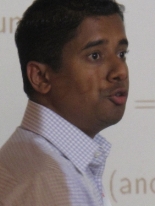 Venky Venkateswaran is Assistant Professor of Economics at New York University Stern School of Business. Prior to joining NYU Stern, he was at Pennsylvania State University. His research focuses on the role of information in macroeconomics. His recent work studies the effects of information frictions on business cycle fluctuations, misallocation of factors of production in emerging economies as well as on imperfectly competitive trading environments. He holds a Ph.D. in Economics from the University of California Los Angeles. Venky Venkateswaran is Assistant Professor of Economics at New York University Stern School of Business. Prior to joining NYU Stern, he was at Pennsylvania State University. His research focuses on the role of information in macroeconomics. His recent work studies the effects of information frictions on business cycle fluctuations, misallocation of factors of production in emerging economies as well as on imperfectly competitive trading environments. He holds a Ph.D. in Economics from the University of California Los Angeles.
Discussant: Franck Portier(Toulouse School of Economics) -
 Franck Portier is a Professor at the Toulouse School of Economics and senior member of the Institut Universitaire de France. He is interested in macroeconomics, environmental and energy economics. In particular, he has been working intensively on the macroeconomic impact of changes in perceptions about the future. He teaches macroeconomics to both undergraduates and graduate students. Franck Portier is a Professor at the Toulouse School of Economics and senior member of the Institut Universitaire de France. He is interested in macroeconomics, environmental and energy economics. In particular, he has been working intensively on the macroeconomic impact of changes in perceptions about the future. He teaches macroeconomics to both undergraduates and graduate students.
Franck Portier obtained his Ph.D. from Université Paris I Panthéon-Sorbonne.
|
| 16:30 - 17:00 |
Coffee Break |
| 17:00 - 18:00 |
Keynote Speech by Lawrence Summers (Harvard University)
- Keynote Speaker: Lawrence Summers (Harvard University)
-
 Lawrence H. Summers is the Charles W. Eliot University Professor and President Emeritus of Harvard University. During the past two decades, he has served in a series of senior policy positions in Washington, D.C., including the 71st Secretary of the Treasury for President Clinton, Director of the National Economic Council for President Obama and Vice President of Development Economics and Chief Economist of the World Bank. Lawrence H. Summers is the Charles W. Eliot University Professor and President Emeritus of Harvard University. During the past two decades, he has served in a series of senior policy positions in Washington, D.C., including the 71st Secretary of the Treasury for President Clinton, Director of the National Economic Council for President Obama and Vice President of Development Economics and Chief Economist of the World Bank.
He received a bachelor of science degree from the Massachusetts Institute of Technology in 1975 and was awarded a Ph.D. from Harvard in 1982. In 1983, he became one of the youngest individuals in recent history to be named as a tenured member of the Harvard University faculty. In 1987, Mr. Summers became the first social scientist ever to receive the annual Alan T. Waterman Award of the National Science Foundation (NSF), and in 1993 he was awarded the John Bates Clark Medal, given every two years to the outstanding American economist under the age of 40.
He is currently the Charles W. Eliot University Professor at Harvard University and the Weil Director of the Mossavar-Rahmani Center for Business & Government at Harvard’s Kennedy School. He and his wife Elisa New, a professor of English at Harvard, reside in Brookline with their six children.
|
Friday, June 19, 2015 |
| 8:30 - 10:30 |
Session 4: Real Interest Rates
- Chair: Richard Portes (EUI, London Business School, and CEPR)
 Richard Portes, Professor of Economics at London Business School, is Founder and President of the Centre for Economic Policy Research (CEPR), inaugural holder of the Tommaso Padoa-Schioppa Chair at the European University Institute, and Co-Chair of the Board of Economic Policy. He is an elected Fellow of the Econometric Society and of the British Academy. He is a member of the Advisory Scientific Committee to the European Systemic Risk Board (and Co-Chair of the ESRB’s Joint Expert Group on Shadow Banking), of the Steering Committee of the Euro50 Group, and of the Bellagio Group on the International Economy. Professor Portes was a Rhodes Scholar and a Fellow of Balliol College, Oxford (of which he is now an Honorary Fellow), and has also taught at Princeton, Harvard, and Birkbeck College (University of London). He has been Distinguished Global Visiting Professor at the Haas Business School, University of California, Berkeley, and Joel Stern Visiting Professor of International Finance at Columbia Business School. He holds three honorary doctorates. His current research interests include international macroeconomics, international finance, macroprudential regulation, European bond markets and European integration. He has written extensively on globalisation, sovereign borrowing and debt, European monetary issues, European financial markets, and international capital flows. Richard Portes, Professor of Economics at London Business School, is Founder and President of the Centre for Economic Policy Research (CEPR), inaugural holder of the Tommaso Padoa-Schioppa Chair at the European University Institute, and Co-Chair of the Board of Economic Policy. He is an elected Fellow of the Econometric Society and of the British Academy. He is a member of the Advisory Scientific Committee to the European Systemic Risk Board (and Co-Chair of the ESRB’s Joint Expert Group on Shadow Banking), of the Steering Committee of the Euro50 Group, and of the Bellagio Group on the International Economy. Professor Portes was a Rhodes Scholar and a Fellow of Balliol College, Oxford (of which he is now an Honorary Fellow), and has also taught at Princeton, Harvard, and Birkbeck College (University of London). He has been Distinguished Global Visiting Professor at the Haas Business School, University of California, Berkeley, and Joel Stern Visiting Professor of International Finance at Columbia Business School. He holds three honorary doctorates. His current research interests include international macroeconomics, international finance, macroprudential regulation, European bond markets and European integration. He has written extensively on globalisation, sovereign borrowing and debt, European monetary issues, European financial markets, and international capital flows.
-
Lower for Longer? Neutral Rates in the United States
Andrea Pescatori (IMF)
 Andrea Pescatori bio here. Andrea Pescatori bio here.
- and Jarkko Turunen (IMF)
 Jarkko Turunen is a Senior Economist at the International Monetary Fund (IMF), currently working on the United States in the Fund’s Western Hemisphere Department with a focus on monetary and fiscal policy issues. He was previously in the Fund’s Strategy, Policy, and Review Department, working on crisis countries and various policy issues, including conditionality in IMF programs, international trade and competitiveness, and jobs and growth. Before joining the IMF, he was a Principal Economist at the European Central Bank, where he worked on policy issues related to euro area macroeconomics and monetary policy, as well as structural issues in the European Union, with a focus on the labor market. He also spent a year as an Yrjö Jahnsson visiting scholar at the Massachusetts Institute of Technology Economics department. He holds a Ph.D. in Economics from the European University Institute in Florence. His main research interests are in macroeconomics, monetary policy and labor economics, with journal publications in the Journal of the European Economic Association, Journal of Economic Perspectives, Journal of Economic Dynamics and Control, Empirical Economics, Review of Income and Wealth, Economics of Transition, Applied Economics and Economics Letters. Jarkko Turunen is a Senior Economist at the International Monetary Fund (IMF), currently working on the United States in the Fund’s Western Hemisphere Department with a focus on monetary and fiscal policy issues. He was previously in the Fund’s Strategy, Policy, and Review Department, working on crisis countries and various policy issues, including conditionality in IMF programs, international trade and competitiveness, and jobs and growth. Before joining the IMF, he was a Principal Economist at the European Central Bank, where he worked on policy issues related to euro area macroeconomics and monetary policy, as well as structural issues in the European Union, with a focus on the labor market. He also spent a year as an Yrjö Jahnsson visiting scholar at the Massachusetts Institute of Technology Economics department. He holds a Ph.D. in Economics from the European University Institute in Florence. His main research interests are in macroeconomics, monetary policy and labor economics, with journal publications in the Journal of the European Economic Association, Journal of Economic Perspectives, Journal of Economic Dynamics and Control, Empirical Economics, Review of Income and Wealth, Economics of Transition, Applied Economics and Economics Letters.
Discussant: Stefano Neri (Bank of Italy)
-
The Equilibrium Real Funds Rate: Past, Present and Future
James Hamilton (University of California at San Diego and NBER)
, - Ethan Harris (Bank of America Merrill Lynch)
, - Jan Hatzius (Goldman Sachs)
and -
Kenneth West (University of Wisconsin and NBER)
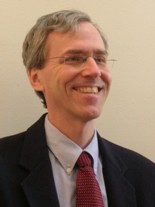 Kenneth West is the John D. MacArthur and Ragnar Frisch Professor of Economics at the University of Wisconsin-Madison. He received a B.A. in Economics and Mathematics from Wesleyan University in 1973 and a Ph.D. in Economics from the Massachusetts Institute of Technology in 1983. He taught at Princeton University from 1983 to 1988 before coming to the University of Wisconsin in 1988. He has held Visiting Scholar positions at several central banks and at several branches of the U.S. Federal Reserve System. He is currently co-editor of the Journal of Money, Credit and Banking and previously served as co-editor of the American Economic Review. He has published influential and widely cited papers in the fields of macroeconomics, finance, international economics and econometrics. Honors include the John M. Stauffer National Fellowship in Public Policy at the Hoover Institution, Alfred P. Sloan Research Fellowship, Fellow of the Econometric Society, Houblon Norman Senior Fellowship at the Bank of England, Fellow of the Journal of Econometrics, Wim Duisenberg Research Fellowship at the European Central Bank, and Abe Fellowship. Kenneth West is the John D. MacArthur and Ragnar Frisch Professor of Economics at the University of Wisconsin-Madison. He received a B.A. in Economics and Mathematics from Wesleyan University in 1973 and a Ph.D. in Economics from the Massachusetts Institute of Technology in 1983. He taught at Princeton University from 1983 to 1988 before coming to the University of Wisconsin in 1988. He has held Visiting Scholar positions at several central banks and at several branches of the U.S. Federal Reserve System. He is currently co-editor of the Journal of Money, Credit and Banking and previously served as co-editor of the American Economic Review. He has published influential and widely cited papers in the fields of macroeconomics, finance, international economics and econometrics. Honors include the John M. Stauffer National Fellowship in Public Policy at the Hoover Institution, Alfred P. Sloan Research Fellowship, Fellow of the Econometric Society, Houblon Norman Senior Fellowship at the Bank of England, Fellow of the Journal of Econometrics, Wim Duisenberg Research Fellowship at the European Central Bank, and Abe Fellowship.
- Discussant: Evi Pappa (EUI and CEPR)
 Evi Pappa is a Professor of macroeconomics at the European University Institute. She joined the EUI in September 2011 from Universitat Autònoma de Barcelona, where she was an Associate Professor, and also Research Professor of Barcelona GSE. After graduating from UPF, she was an assistant professor of economics at the LSE (2001-2006), Bocconi University (2004-2005) and UAB (2005-2006). Her main research interests are International Macroeconomics and Monetary and Fiscal Policy. She has been a visiting researcher in many Central Banks, like the Bank of England, the European Central Bank, the Federal Reserve Bank of Atlanta, and the Riksbank (Sweden). She is a member of the Applied Macroeconomics Network (Amen), is a MOVE (Markets Organizations and Voting in Economics) Research Fellow and a Research Affiliate of the Center for Economic Policy Research (CEPR). She has received the IGIER Scholarship for Young Researchers in 2003-2004, the Paolo Baffi Fellowship in 2008 and the Ramon Areces scholarship in 2010. She has published in international journals such as Journal of Monetary Economics, International Economic Review, Journal of Public Economics and Economic Policy. She is also currently a member of the Economic Policy Panel. Evi Pappa is a Professor of macroeconomics at the European University Institute. She joined the EUI in September 2011 from Universitat Autònoma de Barcelona, where she was an Associate Professor, and also Research Professor of Barcelona GSE. After graduating from UPF, she was an assistant professor of economics at the LSE (2001-2006), Bocconi University (2004-2005) and UAB (2005-2006). Her main research interests are International Macroeconomics and Monetary and Fiscal Policy. She has been a visiting researcher in many Central Banks, like the Bank of England, the European Central Bank, the Federal Reserve Bank of Atlanta, and the Riksbank (Sweden). She is a member of the Applied Macroeconomics Network (Amen), is a MOVE (Markets Organizations and Voting in Economics) Research Fellow and a Research Affiliate of the Center for Economic Policy Research (CEPR). She has received the IGIER Scholarship for Young Researchers in 2003-2004, the Paolo Baffi Fellowship in 2008 and the Ramon Areces scholarship in 2010. She has published in international journals such as Journal of Monetary Economics, International Economic Review, Journal of Public Economics and Economic Policy. She is also currently a member of the Economic Policy Panel.
|
| 10:30 - 11:00 |
Coffee Break |
| 11:00 - 13:00 |
Session 5: Demographics
Chair: Antonio Ciccone (University of Mannheim and CEPR)
-
Demographics and the Behavior of Interest Rates
Carlo Favero (IGIER, Università Bocconi, and CEPR)
, -
Arie Gozluklu (University of Warwick)
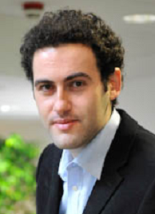 Arie E. Gozluklu is an Assistant Professor of Finance at Warwick Business School, University of Warwick. His research mainly focuses on empirical asset pricing, international finance and market microstructure. His work on the role of demographics on US stock market returns has been published in Journal of Financial and Quantitative Analysis. He currently works on the effects of population age structure on inflation and term structure of interest rates. He has written a chapter on ‘Empirical and Experimental Research on Transparency and Disclosure’ in a book edited by Kent Baker and Halil Yilmaz and published by John Wiley & Sons. He is part of the program committee for the 42nd European Finance Association annual meeting in Vienna. He also serves as ad hoc referee for Journal of European Economic Association, Journal of Banking and Finance, Journal of Financial Markets and Journal of Empirical Finance. He has taught at Bocconi University and Warwick Business School. He has a masters degree in economics from Pompeu Fabra University, Barcelena and a PhD in Finance from Bocconi University, Milan. His research has been presented in many international conferences including European Finance Conference, China International Conference in Finance, NBER Summer Institute and Banque de France. Arie E. Gozluklu is an Assistant Professor of Finance at Warwick Business School, University of Warwick. His research mainly focuses on empirical asset pricing, international finance and market microstructure. His work on the role of demographics on US stock market returns has been published in Journal of Financial and Quantitative Analysis. He currently works on the effects of population age structure on inflation and term structure of interest rates. He has written a chapter on ‘Empirical and Experimental Research on Transparency and Disclosure’ in a book edited by Kent Baker and Halil Yilmaz and published by John Wiley & Sons. He is part of the program committee for the 42nd European Finance Association annual meeting in Vienna. He also serves as ad hoc referee for Journal of European Economic Association, Journal of Banking and Finance, Journal of Financial Markets and Journal of Empirical Finance. He has taught at Bocconi University and Warwick Business School. He has a masters degree in economics from Pompeu Fabra University, Barcelena and a PhD in Finance from Bocconi University, Milan. His research has been presented in many international conferences including European Finance Conference, China International Conference in Finance, NBER Summer Institute and Banque de France.
-
Demographic Dynamics and Secular Stagnation: Some Perspectives for Long-Run Development
Uwe Sunde (University of Munich)
, - Matteo Cervellati (University of Bologna)
and -
Klaus F. Zimmermann (IZA Bonn University and CEPR)
-
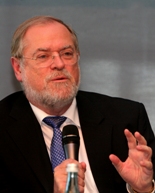 Klaus F. Zimmermann is Full Professor of Economics at the University of Bonn and Director of the Institute for the Study of Labor (IZA). The independent research institute employs the world's largest network of about 1,500 economists from more than 50 countries. Klaus F. Zimmermann is Full Professor of Economics at the University of Bonn and Director of the Institute for the Study of Labor (IZA). The independent research institute employs the world's largest network of about 1,500 economists from more than 50 countries.
He is Honorary Professor of Economics at the Free University of Berlin and at Renmin University of China, a member of the German Academy of Sciences Leopoldina, Section Chair for Economics, Business and Management Sciences of the Academia Europaea, the European Academy of Sciences, and member of its Council, and a member of the Scientific Advisory Board of the Robert Schuman Centre for Advanced Studies at the European University Institute in Florence, among many other positions.
Among his various fellowships are positions as Research Fellow of the Centre for Economic Policy Research (CEPR) in London and Fellow of the European Economic Association (EEA). In September 2013 he received the European Investment Bank’s first EIB Prize (Outstanding Contribution Award).
He regularly publishes in high-quality research journals, writes in leading international media and advises governments, the European Commission and the World Bank on labor market and migration issues. He is Editor-in-Chief of the Journal of Population Economics and the IZA World of Labor.
-
Discussant: Raquel Fernández (NYU and CEPR)
 Raquel Fernández is a Professor in the Department of Economics at NYU. She is also a member of ESOP at the University of Oslo, of the NBER, the CEPR, IZA, BREAD, and of the Human Capital and Economic Opportunity Working Group She has previously been a tenured professor at the London School of Economics and Boston University and held visiting positions at various institutions. She has served as the Director of the Public Policy Program of the CEPR, been a member of the Executive Committee of the Latin American and Caribbean Economic Association, and an advisor to the World Bank's WDR on Gender Equality and Development. She currently serves as an Associate Editor at the Journal of Economic Literature and at Economic Development and Cultural Change. She is the recipient of several NSF grants, of a Spencer Fellowship from the National Academy of Education, a National Fellow at the Hoover Institute, and a Visiting Scholar at the Russell Sage Foundation. Her research is primarily in the areas of sovereign debt, culture and economics, development and gender issues, inequality, and political economy. Raquel Fernández is a Professor in the Department of Economics at NYU. She is also a member of ESOP at the University of Oslo, of the NBER, the CEPR, IZA, BREAD, and of the Human Capital and Economic Opportunity Working Group She has previously been a tenured professor at the London School of Economics and Boston University and held visiting positions at various institutions. She has served as the Director of the Public Policy Program of the CEPR, been a member of the Executive Committee of the Latin American and Caribbean Economic Association, and an advisor to the World Bank's WDR on Gender Equality and Development. She currently serves as an Associate Editor at the Journal of Economic Literature and at Economic Development and Cultural Change. She is the recipient of several NSF grants, of a Spencer Fellowship from the National Academy of Education, a National Fellow at the Hoover Institute, and a Visiting Scholar at the Russell Sage Foundation. Her research is primarily in the areas of sovereign debt, culture and economics, development and gender issues, inequality, and political economy.
|
| 13:00 - 14:30 |
Lunch Break |
| 14:30 - 16:30 |
Session 6: Secular Stagnation and Liquidity Traps
- Chair: Evi Pappa (EUI)
 Evi Pappa is a Professor of macroeconomics at the European University Institute. She joined the EUI in September 2011 from Universitat Autònoma de Barcelona, where she was an Associate Professor, and also Research Professor of Barcelona GSE. After graduating from UPF, she was an assistant professor of economics at the LSE (2001-2006), Bocconi University (2004-2005) and UAB (2005-2006). Her main research interests are International Macroeconomics and Monetary and Fiscal Policy. She has been a visiting researcher in many Central Banks, like the Bank of England, the European Central Bank, the Federal Reserve Bank of Atlanta, and the Riksbank (Sweden). She is a member of the Applied Macroeconomics Network (Amen), is a MOVE (Markets Organizations and Voting in Economics) Research Fellow and a Research Affiliate of the Center for Economic Policy Research (CEPR). She has received the IGIER Scholarship for Young Researchers in 2003-2004, the Paolo Baffi Fellowship in 2008 and the Ramon Areces scholarship in 2010. She has published in international journals such as Journal of Monetary Economics, International Economic Review, Journal of Public Economics and Economic Policy. She is also currently a member of the Economic Policy Panel. Evi Pappa is a Professor of macroeconomics at the European University Institute. She joined the EUI in September 2011 from Universitat Autònoma de Barcelona, where she was an Associate Professor, and also Research Professor of Barcelona GSE. After graduating from UPF, she was an assistant professor of economics at the LSE (2001-2006), Bocconi University (2004-2005) and UAB (2005-2006). Her main research interests are International Macroeconomics and Monetary and Fiscal Policy. She has been a visiting researcher in many Central Banks, like the Bank of England, the European Central Bank, the Federal Reserve Bank of Atlanta, and the Riksbank (Sweden). She is a member of the Applied Macroeconomics Network (Amen), is a MOVE (Markets Organizations and Voting in Economics) Research Fellow and a Research Affiliate of the Center for Economic Policy Research (CEPR). She has received the IGIER Scholarship for Young Researchers in 2003-2004, the Paolo Baffi Fellowship in 2008 and the Ramon Areces scholarship in 2010. She has published in international journals such as Journal of Monetary Economics, International Economic Review, Journal of Public Economics and Economic Policy. She is also currently a member of the Economic Policy Panel.
-
Liquidity Traps and Capital Flows
Sushant Acharya (Federal Reserve Bank of New York)
 Sushant Acharya is an economist in the Macroeconomic and Monetary Studies Function at the Federal Reserve Bank of New York since August 2013. His current research interests include the macroeconomic consequences of informational frictions, the role of monetary and fiscal policy in the economies characterized by incomplete risk sharing and international policy coordination. In addition, he is interested in studying the determinants of the hiring decisions of firms over the business cycle. Sushant received his PhD in Economics from the University of Maryland in 2013. He received his B.A in Economics and M.A in Economics from the University of Delhi in India in 2004 and 2007 respectively. He received a second M.A. in economics from the University of Maryland in 2010. Sushant Acharya is an economist in the Macroeconomic and Monetary Studies Function at the Federal Reserve Bank of New York since August 2013. His current research interests include the macroeconomic consequences of informational frictions, the role of monetary and fiscal policy in the economies characterized by incomplete risk sharing and international policy coordination. In addition, he is interested in studying the determinants of the hiring decisions of firms over the business cycle. Sushant received his PhD in Economics from the University of Maryland in 2013. He received his B.A in Economics and M.A in Economics from the University of Delhi in India in 2004 and 2007 respectively. He received a second M.A. in economics from the University of Maryland in 2010.
- Julien Bengui (Université de Montréal)
Discussant: Gregory Thwaites (Bank of England)
-
Stagnation Traps
Gianluca Benigno (London School of Economics, CEPR, and Centre for Macroeconomics)
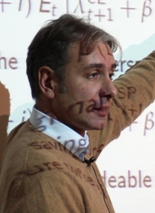 Gianluca Benigno is associate professor in the Department of Economics at the London School of Economics. He gained his PhD in International Macroeconomics from the University of California at Berkeley. He has published on exchange rate economics, international monetary policy cooperation, monetary and fiscal policy and international capital flows. He has been a consultant at the IMF, IADB, senior economist at the Federal Reserve Bank of New York and an economist at the Bank of England. He has been visiting professor at University of Naples (Federico II), LUISS University of Rome and Princeton University and held training courses in several central banks (CCBS at Bank of England, Banco de la Republica (Colombia), Czech Republic Central Bank, Euro Area Business Cycle Network at the Bank of Italy, Budapest Summer School at the Magyar Nemzeti. Gianluca Benigno is associate professor in the Department of Economics at the London School of Economics. He gained his PhD in International Macroeconomics from the University of California at Berkeley. He has published on exchange rate economics, international monetary policy cooperation, monetary and fiscal policy and international capital flows. He has been a consultant at the IMF, IADB, senior economist at the Federal Reserve Bank of New York and an economist at the Bank of England. He has been visiting professor at University of Naples (Federico II), LUISS University of Rome and Princeton University and held training courses in several central banks (CCBS at Bank of England, Banco de la Republica (Colombia), Czech Republic Central Bank, Euro Area Business Cycle Network at the Bank of Italy, Budapest Summer School at the Magyar Nemzeti.
|
| 16:30 |
Closing Remarks -- TBC |
EIN Presswire provides this news content "as is" without warranty of any kind. We do not accept any responsibility or liability
for the accuracy, content, images, videos, licenses, completeness, legality, or reliability of the information contained in this
article. If you have any complaints or copyright issues related to this article, kindly contact the author above.

 Pau Rabanal is a Senior Economist in the IMF´s Research Department and Associate Editor of the IMF Economic Review. He joined the IMF in 2002 and has also worked in the Monetary and Capital Markets, Western Hemisphere, Middle East and Central Asia and Institute For Capacity Development departments of the IMF. Between 2006 and 2008, he was an economist in the research department at La Caixa in Barcelona. He obtained a BA in Economics and Business Administration from Universitat Pompeu Fabra in Barcelona, a MSc in Economics and Finance from CEMFI, and he holds a PhD in Economics from New York University. His fields of specialization are monetary economics, international economics and time series econometrics. He has published papers in the Journal of Monetary Economics, Journal of International Economics, Journal of Money, Credit and Banking, International Journal of Central Banking, and the NBER Macroeconomics Annual.
Pau Rabanal is a Senior Economist in the IMF´s Research Department and Associate Editor of the IMF Economic Review. He joined the IMF in 2002 and has also worked in the Monetary and Capital Markets, Western Hemisphere, Middle East and Central Asia and Institute For Capacity Development departments of the IMF. Between 2006 and 2008, he was an economist in the research department at La Caixa in Barcelona. He obtained a BA in Economics and Business Administration from Universitat Pompeu Fabra in Barcelona, a MSc in Economics and Finance from CEMFI, and he holds a PhD in Economics from New York University. His fields of specialization are monetary economics, international economics and time series econometrics. He has published papers in the Journal of Monetary Economics, Journal of International Economics, Journal of Money, Credit and Banking, International Journal of Central Banking, and the NBER Macroeconomics Annual. Jaume Ventura earned his PhD in Economics at Harvard University in 1995. Currently he is a Senior Researcher at the Center for Research in International Economics (CREI), a Research Professor at the Barcelona GSE and a Professor at Universitat Pompeu Fabra (UPF). Previously, he held academic positions at the MIT and the University of Chicago. He served as a co-director of the International Macroeconomics Programme of the CEPR and also as an editor of the Economic Journal. He is a Research Fellow at the CEPR, a Research Associate at the NBER, and a Fellow of the European Economic Association. He served as a consultant to the IMF, the World Bank and the Inter-American Development Bank. His research interests include international economics and macroeconomics.
Jaume Ventura earned his PhD in Economics at Harvard University in 1995. Currently he is a Senior Researcher at the Center for Research in International Economics (CREI), a Research Professor at the Barcelona GSE and a Professor at Universitat Pompeu Fabra (UPF). Previously, he held academic positions at the MIT and the University of Chicago. He served as a co-director of the International Macroeconomics Programme of the CEPR and also as an editor of the Economic Journal. He is a Research Fellow at the CEPR, a Research Associate at the NBER, and a Fellow of the European Economic Association. He served as a consultant to the IMF, the World Bank and the Inter-American Development Bank. His research interests include international economics and macroeconomics. Vincent Sterk has been a lecturer (assistant professor) in macroeconomics at the Economics Department of University College London since 2011. Previously, he was a PhD student at the University of Amsterdam and an economist at De Nederlandsche Bank (the Dutch Central Bank). His work aims to better understand the importance fluctuations in aggregate employment, and in particular the role of cyclical swings house prices, firm start-ups and precautionary savings. A second line of research focuses on gaining a better understanding of the monetary transmission mechanism. A common theme in both lines of research is to explore the importance of heterogeneity among economic agents and non-linear effects. In 2011, Vincent received a medal for best PhD dissertation in economics, awarded once every three years by the Dutch Royal Society for Economics (KVS).
Vincent Sterk has been a lecturer (assistant professor) in macroeconomics at the Economics Department of University College London since 2011. Previously, he was a PhD student at the University of Amsterdam and an economist at De Nederlandsche Bank (the Dutch Central Bank). His work aims to better understand the importance fluctuations in aggregate employment, and in particular the role of cyclical swings house prices, firm start-ups and precautionary savings. A second line of research focuses on gaining a better understanding of the monetary transmission mechanism. A common theme in both lines of research is to explore the importance of heterogeneity among economic agents and non-linear effects. In 2011, Vincent received a medal for best PhD dissertation in economics, awarded once every three years by the Dutch Royal Society for Economics (KVS). Pierre-Olivier Gourinchas grew up in Montpellier, France. He attended Ecole Polytechnique then received his PhD in Economics in 1996 from MIT. He taught at Stanford Graduate School of Business and Princeton University before joining UC Berkeley department of economics.
Pierre-Olivier Gourinchas grew up in Montpellier, France. He attended Ecole Polytechnique then received his PhD in Economics in 1996 from MIT. He taught at Stanford Graduate School of Business and Princeton University before joining UC Berkeley department of economics.
 Gregory Thwaites is Head of International Research at the Bank of England. He joined the Bank in 2001 and since then has worked in a broad range of policy roles covering international finance, monetary policy, macroprudential policy and banking structural reform. He has also worked for the United Nations, the UK Independent Commission on Banking, and the UK Houses of Parliament. He holds degrees in economics from Cambridge University, UCL and the London School of Economics.
Gregory Thwaites is Head of International Research at the Bank of England. He joined the Bank in 2001 and since then has worked in a broad range of policy roles covering international finance, monetary policy, macroprudential policy and banking structural reform. He has also worked for the United Nations, the UK Independent Commission on Banking, and the UK Houses of Parliament. He holds degrees in economics from Cambridge University, UCL and the London School of Economics. Alberto Martin is a Senior Economist in the IMF’s Research Department on leave from the Centre de Recerca en Economia Internacional (CREI) and the Barcelona Graduate School of Economics, where he respectively serves as a Senior Researcher and a Research Professor. He is also a Research Affiliate at the Center for Economic and Policy Research (London) and a member of the editorial board of the Review of Economic Studies. Martin´s research lies at the intersection of macroeconomics and finance. His work has been published in leading economic journals including the American Economic Review, the Journal of Finance and the Journal of Economic Theory. In the past, Martin has been a Research Fellow at the IMF, a Lamfalussy Fellow at the European Central Bank, and a Fulbright Fellow. He has also consulted for the United Nations Development Program and worked in Argentina’s Ministry of Economics. He holds a PhD in Economics from Columbia University.
Alberto Martin is a Senior Economist in the IMF’s Research Department on leave from the Centre de Recerca en Economia Internacional (CREI) and the Barcelona Graduate School of Economics, where he respectively serves as a Senior Researcher and a Research Professor. He is also a Research Affiliate at the Center for Economic and Policy Research (London) and a member of the editorial board of the Review of Economic Studies. Martin´s research lies at the intersection of macroeconomics and finance. His work has been published in leading economic journals including the American Economic Review, the Journal of Finance and the Journal of Economic Theory. In the past, Martin has been a Research Fellow at the IMF, a Lamfalussy Fellow at the European Central Bank, and a Fulbright Fellow. He has also consulted for the United Nations Development Program and worked in Argentina’s Ministry of Economics. He holds a PhD in Economics from Columbia University. Jaume Ventura earned his PhD in Economics at Harvard University in 1995. Currently he is a Senior Researcher at the Center for Research in International Economics (CREI), a Research Professor at the Barcelona GSE and a Professor at Universitat Pompeu Fabra (UPF). Previously, he held academic positions at the MIT and the University of Chicago. He served as a co-director of the International Macroeconomics Programme of the CEPR and also as an editor of the Economic Journal. He is a Research Fellow at the CEPR, a Research Associate at the NBER, and a Fellow of the European Economic Association. He served as a consultant to the IMF, the World Bank and the Inter-American Development Bank. His research interests include international economics and macroeconomics.
Jaume Ventura earned his PhD in Economics at Harvard University in 1995. Currently he is a Senior Researcher at the Center for Research in International Economics (CREI), a Research Professor at the Barcelona GSE and a Professor at Universitat Pompeu Fabra (UPF). Previously, he held academic positions at the MIT and the University of Chicago. He served as a co-director of the International Macroeconomics Programme of the CEPR and also as an editor of the Economic Journal. He is a Research Fellow at the CEPR, a Research Associate at the NBER, and a Fellow of the European Economic Association. He served as a consultant to the IMF, the World Bank and the Inter-American Development Bank. His research interests include international economics and macroeconomics. François Geerolf is an Assistant Professor at University of California, Los Angeles. He defended his PhD thesis entitled "Bubbles and Asset Supply" at Sciences Po Paris. He is a graduate from Ecole Polytechnique and Corps des Ponts et Chaussées in France; and spent a year at Harvard University and a semester at MIT during his doctoral studies. He is interested in a broad range of questions around financial regulation and macroeconomics.
In particular, François conducts research on the theory and empirical plausibility of dynamic inefficiency and low interest rates, as well as the connection with the existence of productive land. He works on rational and behavioral models of financial bubbles, studying more particularly their appearance and evolution, as well as their impact on the business cycle. He also works on models of financial leverage with endogenous collateral constraints, over-the-counter markets, pyramiding lending arrangements, short-sales and credit default swaps. Finally, he has argued that house price increases, and in particular house price bubbles, could be driving capital inflows through variations in country-level asset supply.
François Geerolf is an Assistant Professor at University of California, Los Angeles. He defended his PhD thesis entitled "Bubbles and Asset Supply" at Sciences Po Paris. He is a graduate from Ecole Polytechnique and Corps des Ponts et Chaussées in France; and spent a year at Harvard University and a semester at MIT during his doctoral studies. He is interested in a broad range of questions around financial regulation and macroeconomics.
In particular, François conducts research on the theory and empirical plausibility of dynamic inefficiency and low interest rates, as well as the connection with the existence of productive land. He works on rational and behavioral models of financial bubbles, studying more particularly their appearance and evolution, as well as their impact on the business cycle. He also works on models of financial leverage with endogenous collateral constraints, over-the-counter markets, pyramiding lending arrangements, short-sales and credit default swaps. Finally, he has argued that house price increases, and in particular house price bubbles, could be driving capital inflows through variations in country-level asset supply.
 Venky Venkateswaran is Assistant Professor of Economics at New York University Stern School of Business. Prior to joining NYU Stern, he was at Pennsylvania State University. His research focuses on the role of information in macroeconomics. His recent work studies the effects of information frictions on business cycle fluctuations, misallocation of factors of production in emerging economies as well as on imperfectly competitive trading environments. He holds a Ph.D. in Economics from the University of California Los Angeles.
Venky Venkateswaran is Assistant Professor of Economics at New York University Stern School of Business. Prior to joining NYU Stern, he was at Pennsylvania State University. His research focuses on the role of information in macroeconomics. His recent work studies the effects of information frictions on business cycle fluctuations, misallocation of factors of production in emerging economies as well as on imperfectly competitive trading environments. He holds a Ph.D. in Economics from the University of California Los Angeles. Franck Portier is a Professor at the Toulouse School of Economics and senior member of the Institut Universitaire de France. He is interested in macroeconomics, environmental and energy economics. In particular, he has been working intensively on the macroeconomic impact of changes in perceptions about the future. He teaches macroeconomics to both undergraduates and graduate students.
Franck Portier is a Professor at the Toulouse School of Economics and senior member of the Institut Universitaire de France. He is interested in macroeconomics, environmental and energy economics. In particular, he has been working intensively on the macroeconomic impact of changes in perceptions about the future. He teaches macroeconomics to both undergraduates and graduate students. Lawrence H. Summers is the Charles W. Eliot University Professor and President Emeritus of Harvard University. During the past two decades, he has served in a series of senior policy positions in Washington, D.C., including the 71st Secretary of the Treasury for President Clinton, Director of the National Economic Council for President Obama and Vice President of Development Economics and Chief Economist of the World Bank.
Lawrence H. Summers is the Charles W. Eliot University Professor and President Emeritus of Harvard University. During the past two decades, he has served in a series of senior policy positions in Washington, D.C., including the 71st Secretary of the Treasury for President Clinton, Director of the National Economic Council for President Obama and Vice President of Development Economics and Chief Economist of the World Bank. Richard Portes, Professor of Economics at London Business School, is Founder and President of the Centre for Economic Policy Research (CEPR), inaugural holder of the Tommaso Padoa-Schioppa Chair at the European University Institute, and Co-Chair of the Board of Economic Policy. He is an elected Fellow of the Econometric Society and of the British Academy. He is a member of the Advisory Scientific Committee to the European Systemic Risk Board (and Co-Chair of the ESRB’s Joint Expert Group on Shadow Banking), of the Steering Committee of the Euro50 Group, and of the Bellagio Group on the International Economy. Professor Portes was a Rhodes Scholar and a Fellow of Balliol College, Oxford (of which he is now an Honorary Fellow), and has also taught at Princeton, Harvard, and Birkbeck College (University of London). He has been Distinguished Global Visiting Professor at the Haas Business School, University of California, Berkeley, and Joel Stern Visiting Professor of International Finance at Columbia Business School. He holds three honorary doctorates. His current research interests include international macroeconomics, international finance, macroprudential regulation, European bond markets and European integration. He has written extensively on globalisation, sovereign borrowing and debt, European monetary issues, European financial markets, and international capital flows.
Richard Portes, Professor of Economics at London Business School, is Founder and President of the Centre for Economic Policy Research (CEPR), inaugural holder of the Tommaso Padoa-Schioppa Chair at the European University Institute, and Co-Chair of the Board of Economic Policy. He is an elected Fellow of the Econometric Society and of the British Academy. He is a member of the Advisory Scientific Committee to the European Systemic Risk Board (and Co-Chair of the ESRB’s Joint Expert Group on Shadow Banking), of the Steering Committee of the Euro50 Group, and of the Bellagio Group on the International Economy. Professor Portes was a Rhodes Scholar and a Fellow of Balliol College, Oxford (of which he is now an Honorary Fellow), and has also taught at Princeton, Harvard, and Birkbeck College (University of London). He has been Distinguished Global Visiting Professor at the Haas Business School, University of California, Berkeley, and Joel Stern Visiting Professor of International Finance at Columbia Business School. He holds three honorary doctorates. His current research interests include international macroeconomics, international finance, macroprudential regulation, European bond markets and European integration. He has written extensively on globalisation, sovereign borrowing and debt, European monetary issues, European financial markets, and international capital flows. Andrea Pescatori bio here.
Andrea Pescatori bio here. Jarkko Turunen is a Senior Economist at the International Monetary Fund (IMF), currently working on the United States in the Fund’s Western Hemisphere Department with a focus on monetary and fiscal policy issues. He was previously in the Fund’s Strategy, Policy, and Review Department, working on crisis countries and various policy issues, including conditionality in IMF programs, international trade and competitiveness, and jobs and growth. Before joining the IMF, he was a Principal Economist at the European Central Bank, where he worked on policy issues related to euro area macroeconomics and monetary policy, as well as structural issues in the European Union, with a focus on the labor market. He also spent a year as an Yrjö Jahnsson visiting scholar at the Massachusetts Institute of Technology Economics department. He holds a Ph.D. in Economics from the European University Institute in Florence. His main research interests are in macroeconomics, monetary policy and labor economics, with journal publications in the Journal of the European Economic Association, Journal of Economic Perspectives, Journal of Economic Dynamics and Control, Empirical Economics, Review of Income and Wealth, Economics of Transition, Applied Economics and Economics Letters.
Jarkko Turunen is a Senior Economist at the International Monetary Fund (IMF), currently working on the United States in the Fund’s Western Hemisphere Department with a focus on monetary and fiscal policy issues. He was previously in the Fund’s Strategy, Policy, and Review Department, working on crisis countries and various policy issues, including conditionality in IMF programs, international trade and competitiveness, and jobs and growth. Before joining the IMF, he was a Principal Economist at the European Central Bank, where he worked on policy issues related to euro area macroeconomics and monetary policy, as well as structural issues in the European Union, with a focus on the labor market. He also spent a year as an Yrjö Jahnsson visiting scholar at the Massachusetts Institute of Technology Economics department. He holds a Ph.D. in Economics from the European University Institute in Florence. His main research interests are in macroeconomics, monetary policy and labor economics, with journal publications in the Journal of the European Economic Association, Journal of Economic Perspectives, Journal of Economic Dynamics and Control, Empirical Economics, Review of Income and Wealth, Economics of Transition, Applied Economics and Economics Letters. Kenneth West is the John D. MacArthur and Ragnar Frisch Professor of Economics at the University of Wisconsin-Madison. He received a B.A. in Economics and Mathematics from Wesleyan University in 1973 and a Ph.D. in Economics from the Massachusetts Institute of Technology in 1983. He taught at Princeton University from 1983 to 1988 before coming to the University of Wisconsin in 1988. He has held Visiting Scholar positions at several central banks and at several branches of the U.S. Federal Reserve System. He is currently co-editor of the Journal of Money, Credit and Banking and previously served as co-editor of the American Economic Review. He has published influential and widely cited papers in the fields of macroeconomics, finance, international economics and econometrics. Honors include the John M. Stauffer National Fellowship in Public Policy at the Hoover Institution, Alfred P. Sloan Research Fellowship, Fellow of the Econometric Society, Houblon Norman Senior Fellowship at the Bank of England, Fellow of the Journal of Econometrics, Wim Duisenberg Research Fellowship at the European Central Bank, and Abe Fellowship.
Kenneth West is the John D. MacArthur and Ragnar Frisch Professor of Economics at the University of Wisconsin-Madison. He received a B.A. in Economics and Mathematics from Wesleyan University in 1973 and a Ph.D. in Economics from the Massachusetts Institute of Technology in 1983. He taught at Princeton University from 1983 to 1988 before coming to the University of Wisconsin in 1988. He has held Visiting Scholar positions at several central banks and at several branches of the U.S. Federal Reserve System. He is currently co-editor of the Journal of Money, Credit and Banking and previously served as co-editor of the American Economic Review. He has published influential and widely cited papers in the fields of macroeconomics, finance, international economics and econometrics. Honors include the John M. Stauffer National Fellowship in Public Policy at the Hoover Institution, Alfred P. Sloan Research Fellowship, Fellow of the Econometric Society, Houblon Norman Senior Fellowship at the Bank of England, Fellow of the Journal of Econometrics, Wim Duisenberg Research Fellowship at the European Central Bank, and Abe Fellowship. Evi Pappa is a Professor of macroeconomics at the European University Institute. She joined the EUI in September 2011 from Universitat Autònoma de Barcelona, where she was an Associate Professor, and also Research Professor of Barcelona GSE. After graduating from UPF, she was an assistant professor of economics at the LSE (2001-2006), Bocconi University (2004-2005) and UAB (2005-2006). Her main research interests are International Macroeconomics and Monetary and Fiscal Policy. She has been a visiting researcher in many Central Banks, like the Bank of England, the European Central Bank, the Federal Reserve Bank of Atlanta, and the Riksbank (Sweden). She is a member of the Applied Macroeconomics Network (Amen), is a MOVE (Markets Organizations and Voting in Economics) Research Fellow and a Research Affiliate of the Center for Economic Policy Research (CEPR). She has received the IGIER Scholarship for Young Researchers in 2003-2004, the Paolo Baffi Fellowship in 2008 and the Ramon Areces scholarship in 2010. She has published in international journals such as Journal of Monetary Economics, International Economic Review, Journal of Public Economics and Economic Policy. She is also currently a member of the Economic Policy Panel.
Evi Pappa is a Professor of macroeconomics at the European University Institute. She joined the EUI in September 2011 from Universitat Autònoma de Barcelona, where she was an Associate Professor, and also Research Professor of Barcelona GSE. After graduating from UPF, she was an assistant professor of economics at the LSE (2001-2006), Bocconi University (2004-2005) and UAB (2005-2006). Her main research interests are International Macroeconomics and Monetary and Fiscal Policy. She has been a visiting researcher in many Central Banks, like the Bank of England, the European Central Bank, the Federal Reserve Bank of Atlanta, and the Riksbank (Sweden). She is a member of the Applied Macroeconomics Network (Amen), is a MOVE (Markets Organizations and Voting in Economics) Research Fellow and a Research Affiliate of the Center for Economic Policy Research (CEPR). She has received the IGIER Scholarship for Young Researchers in 2003-2004, the Paolo Baffi Fellowship in 2008 and the Ramon Areces scholarship in 2010. She has published in international journals such as Journal of Monetary Economics, International Economic Review, Journal of Public Economics and Economic Policy. She is also currently a member of the Economic Policy Panel. Arie E. Gozluklu is an Assistant Professor of Finance at Warwick Business School, University of Warwick. His research mainly focuses on empirical asset pricing, international finance and market microstructure. His work on the role of demographics on US stock market returns has been published in Journal of Financial and Quantitative Analysis. He currently works on the effects of population age structure on inflation and term structure of interest rates. He has written a chapter on ‘Empirical and Experimental Research on Transparency and Disclosure’ in a book edited by Kent Baker and Halil Yilmaz and published by John Wiley & Sons. He is part of the program committee for the 42nd European Finance Association annual meeting in Vienna. He also serves as ad hoc referee for Journal of European Economic Association, Journal of Banking and Finance, Journal of Financial Markets and Journal of Empirical Finance. He has taught at Bocconi University and Warwick Business School. He has a masters degree in economics from Pompeu Fabra University, Barcelena and a PhD in Finance from Bocconi University, Milan. His research has been presented in many international conferences including European Finance Conference, China International Conference in Finance, NBER Summer Institute and Banque de France.
Arie E. Gozluklu is an Assistant Professor of Finance at Warwick Business School, University of Warwick. His research mainly focuses on empirical asset pricing, international finance and market microstructure. His work on the role of demographics on US stock market returns has been published in Journal of Financial and Quantitative Analysis. He currently works on the effects of population age structure on inflation and term structure of interest rates. He has written a chapter on ‘Empirical and Experimental Research on Transparency and Disclosure’ in a book edited by Kent Baker and Halil Yilmaz and published by John Wiley & Sons. He is part of the program committee for the 42nd European Finance Association annual meeting in Vienna. He also serves as ad hoc referee for Journal of European Economic Association, Journal of Banking and Finance, Journal of Financial Markets and Journal of Empirical Finance. He has taught at Bocconi University and Warwick Business School. He has a masters degree in economics from Pompeu Fabra University, Barcelena and a PhD in Finance from Bocconi University, Milan. His research has been presented in many international conferences including European Finance Conference, China International Conference in Finance, NBER Summer Institute and Banque de France. Klaus F. Zimmermann is Full Professor of Economics at the University of Bonn and Director of the Institute for the Study of Labor (IZA). The independent research institute employs the world's largest network of about 1,500 economists from more than 50 countries.
Klaus F. Zimmermann is Full Professor of Economics at the University of Bonn and Director of the Institute for the Study of Labor (IZA). The independent research institute employs the world's largest network of about 1,500 economists from more than 50 countries.  Raquel Fernández is a Professor in the Department of Economics at NYU. She is also a member of ESOP at the University of Oslo, of the NBER, the CEPR, IZA, BREAD, and of the Human Capital and Economic Opportunity Working Group She has previously been a tenured professor at the London School of Economics and Boston University and held visiting positions at various institutions. She has served as the Director of the Public Policy Program of the CEPR, been a member of the Executive Committee of the Latin American and Caribbean Economic Association, and an advisor to the World Bank's WDR on Gender Equality and Development. She currently serves as an Associate Editor at the Journal of Economic Literature and at Economic Development and Cultural Change. She is the recipient of several NSF grants, of a Spencer Fellowship from the National Academy of Education, a National Fellow at the Hoover Institute, and a Visiting Scholar at the Russell Sage Foundation. Her research is primarily in the areas of sovereign debt, culture and economics, development and gender issues, inequality, and political economy.
Raquel Fernández is a Professor in the Department of Economics at NYU. She is also a member of ESOP at the University of Oslo, of the NBER, the CEPR, IZA, BREAD, and of the Human Capital and Economic Opportunity Working Group She has previously been a tenured professor at the London School of Economics and Boston University and held visiting positions at various institutions. She has served as the Director of the Public Policy Program of the CEPR, been a member of the Executive Committee of the Latin American and Caribbean Economic Association, and an advisor to the World Bank's WDR on Gender Equality and Development. She currently serves as an Associate Editor at the Journal of Economic Literature and at Economic Development and Cultural Change. She is the recipient of several NSF grants, of a Spencer Fellowship from the National Academy of Education, a National Fellow at the Hoover Institute, and a Visiting Scholar at the Russell Sage Foundation. Her research is primarily in the areas of sovereign debt, culture and economics, development and gender issues, inequality, and political economy. Sushant Acharya is an economist in the Macroeconomic and Monetary Studies Function at the Federal Reserve Bank of New York since August 2013. His current research interests include the macroeconomic consequences of informational frictions, the role of monetary and fiscal policy in the economies characterized by incomplete risk sharing and international policy coordination. In addition, he is interested in studying the determinants of the hiring decisions of firms over the business cycle. Sushant received his PhD in Economics from the University of Maryland in 2013. He received his B.A in Economics and M.A in Economics from the University of Delhi in India in 2004 and 2007 respectively. He received a second M.A. in economics from the University of Maryland in 2010.
Sushant Acharya is an economist in the Macroeconomic and Monetary Studies Function at the Federal Reserve Bank of New York since August 2013. His current research interests include the macroeconomic consequences of informational frictions, the role of monetary and fiscal policy in the economies characterized by incomplete risk sharing and international policy coordination. In addition, he is interested in studying the determinants of the hiring decisions of firms over the business cycle. Sushant received his PhD in Economics from the University of Maryland in 2013. He received his B.A in Economics and M.A in Economics from the University of Delhi in India in 2004 and 2007 respectively. He received a second M.A. in economics from the University of Maryland in 2010. Gianluca Benigno is associate professor in the Department of Economics at the London School of Economics. He gained his PhD in International Macroeconomics from the University of California at Berkeley. He has published on exchange rate economics, international monetary policy cooperation, monetary and fiscal policy and international capital flows. He has been a consultant at the IMF, IADB, senior economist at the Federal Reserve Bank of New York and an economist at the Bank of England. He has been visiting professor at University of Naples (Federico II), LUISS University of Rome and Princeton University and held training courses in several central banks (CCBS at Bank of England, Banco de la Republica (Colombia), Czech Republic Central Bank, Euro Area Business Cycle Network at the Bank of Italy, Budapest Summer School at the Magyar Nemzeti.
Gianluca Benigno is associate professor in the Department of Economics at the London School of Economics. He gained his PhD in International Macroeconomics from the University of California at Berkeley. He has published on exchange rate economics, international monetary policy cooperation, monetary and fiscal policy and international capital flows. He has been a consultant at the IMF, IADB, senior economist at the Federal Reserve Bank of New York and an economist at the Bank of England. He has been visiting professor at University of Naples (Federico II), LUISS University of Rome and Princeton University and held training courses in several central banks (CCBS at Bank of England, Banco de la Republica (Colombia), Czech Republic Central Bank, Euro Area Business Cycle Network at the Bank of Italy, Budapest Summer School at the Magyar Nemzeti.